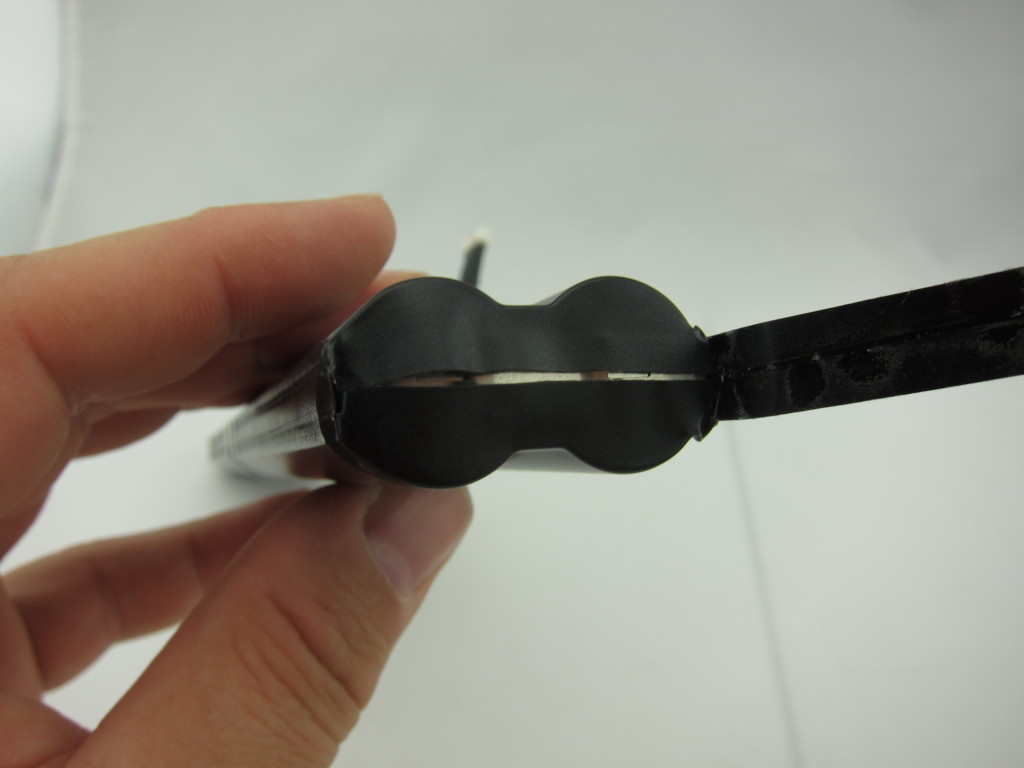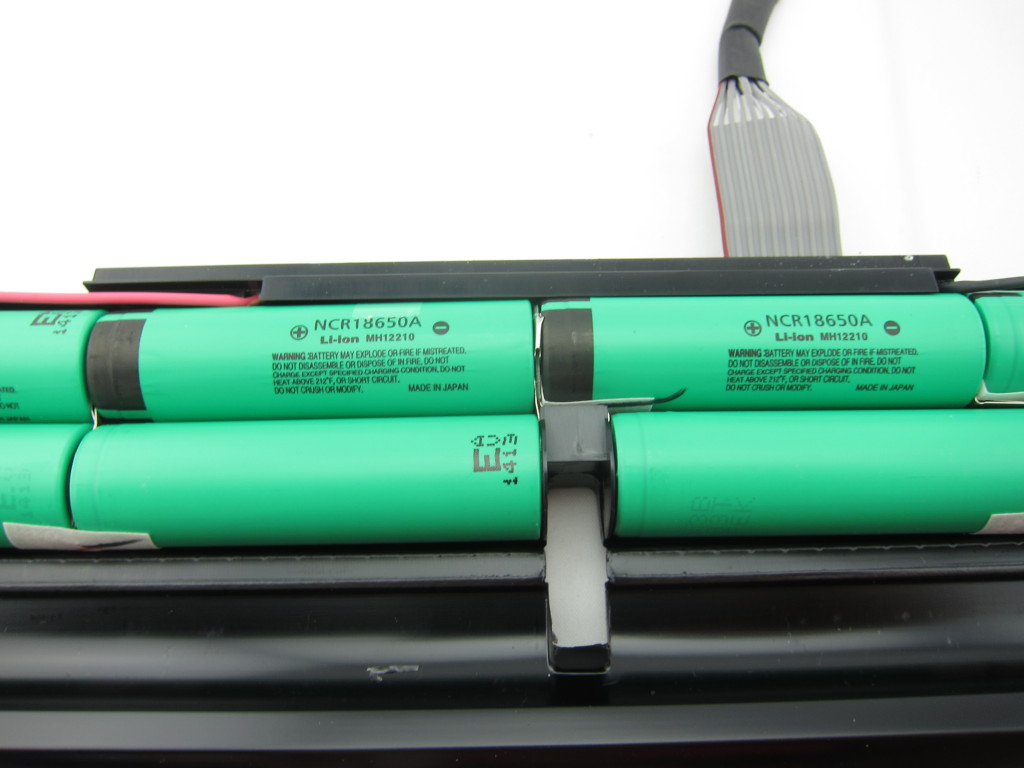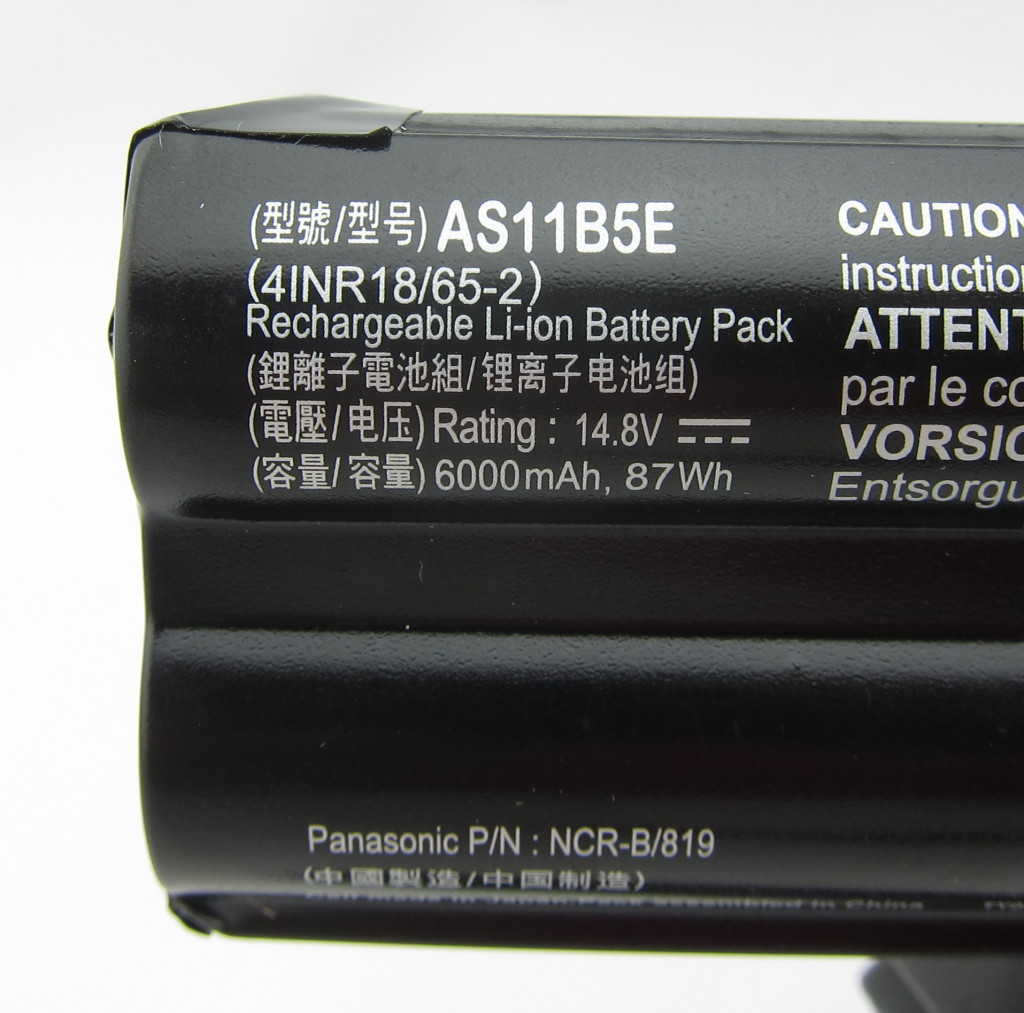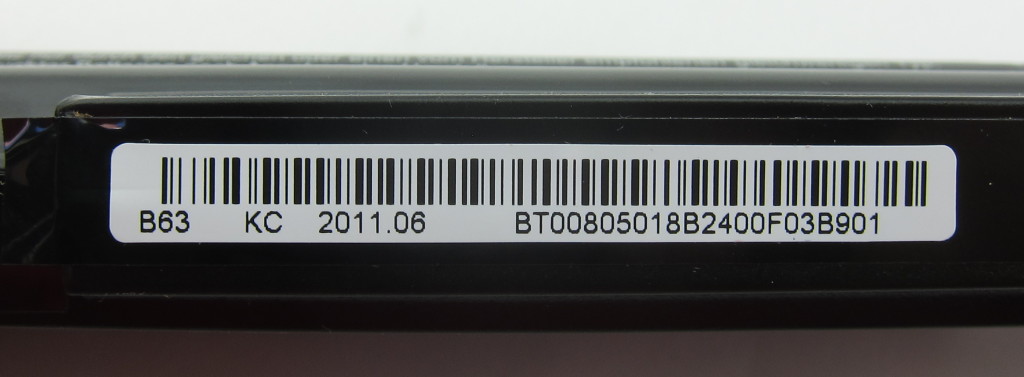I’ve been trying to get my hands on some higher capacity cells than the 2,600 mAh Samsung cells I’ve accumulated so many of, so I’ve been looking through ebay listings for reasonably priced new battery packs and then checking the photos, descriptions, and even the web for specs and other information that will help me figure out whats inside.
I recently ordered a Acer AS11B5E (4INR 18/65-2) battery pack fro $21.99 with free shipping from In And Out Electronics. They shipped it out quickly and I received it today.

As you can see, its not like most packs made with 18650 cells. Rather than a tough case with connectors and latches for easy installation and removal, this pack has a thin flexible case ribbon cable with a connector. Its clearly meant to be an internal battery that isn’t swapped, but replaced when it wears out. This has been Apple’s approach for about 6 years now, but Acer is using standard 18650 cells, while apple is using custom sized pouch cells.
Apparently the laptop this was designed to power was an absolutely huge media laptop with a 18.5″ display. Crazy!
This pack was incredibly easy to open! .Getting the batteries out of most packs is like shelling a crab, or getting the meat out of a ripe coconut, this was like shelling shrimp, or a soft-shell crab. I just had to pull off strips of tape to get to the sweet sweet battery meat inside.
Look at those juicy cells! Those are Panasonic NCR18650A cells with a nominal 3,100 mAh capacity! Even better than I expected, and I’ve got 8 of them!
I was hoping for 2,800 or 2,900 mAh cells, based on the specs for the pack that I was able to find which rated it at 14.8v and 84Wh, so the extra nominal capacity was a nice surprise. I’m not sure the source of the discrepancy though. It could simply be that Acer derates the cells slightly.
Another explanation is that these cells tolerate discharges down to 2.5v (most cells should only be discharged down to ~3v) but the capacity between 3v and 2.5v is less than 10% of the total. From the specs for Panasonic NCR18650A cells, it looks like the capacity is ~2,950 mAh if you only discharge to 3v. Avoiding maximum discharge also increases the useful life of the cell.
In any case, in retrospect, some of the clues were there before I opened the pack.
- 4INR18/65-2: A series of four cells 18mm in diameter and 65mm long (aka 18650), with two cells in parallel.
- 14.8v: 4 cells in a series works out to a nominal cell voltage of 3.7v (panasonic actually lists 3.6 as the nominal cell voltage for these batteries, but I think thats because of the discharge profile that reaches lower voltage than typical for cells of this chemistry).
- Panasonic P/N : NCR-B819: This suggests that the pack is manufactured by Panasonic, and so not a surprise that it includes panasonic cells.
Once I had the pack apart, I checked the voltage and found that it only measured 7.8 volts or so, or a bit under 2v for an individual cell. With ordinary lithium ion batteries, that would be a worryingly low voltage. I’m hoping that its less of an issue with these cells. I immediately applied a low charging current (200mA) to bring the pack up to ~3V.
It appears to me that this pack was manufactured in June of 2011, or a bit over 3 years ago. Thats a long time to sit without being recharged, though I’ve had older packs that have discharged less.
I’m keeping the circuitry of the pack intact so I can try to read out information from the battery management board. Once I’ve done that, I’ll put these cells through a few charge/discharge cycles and see how they perform.



